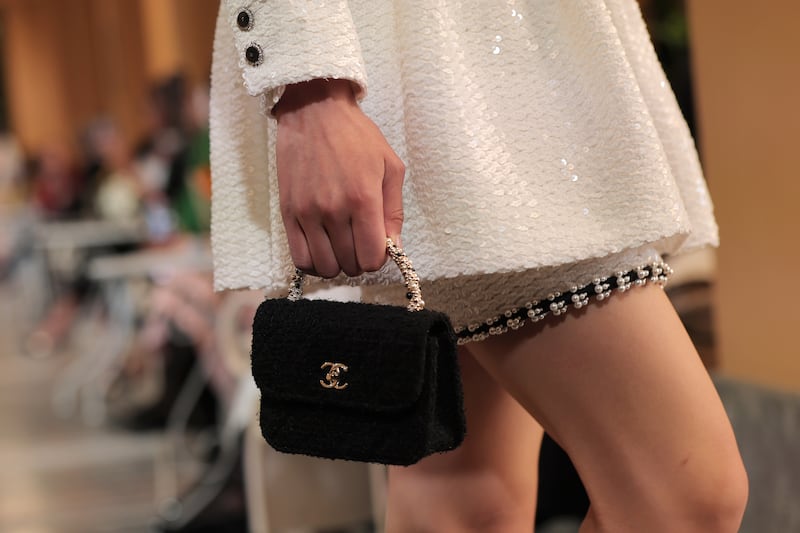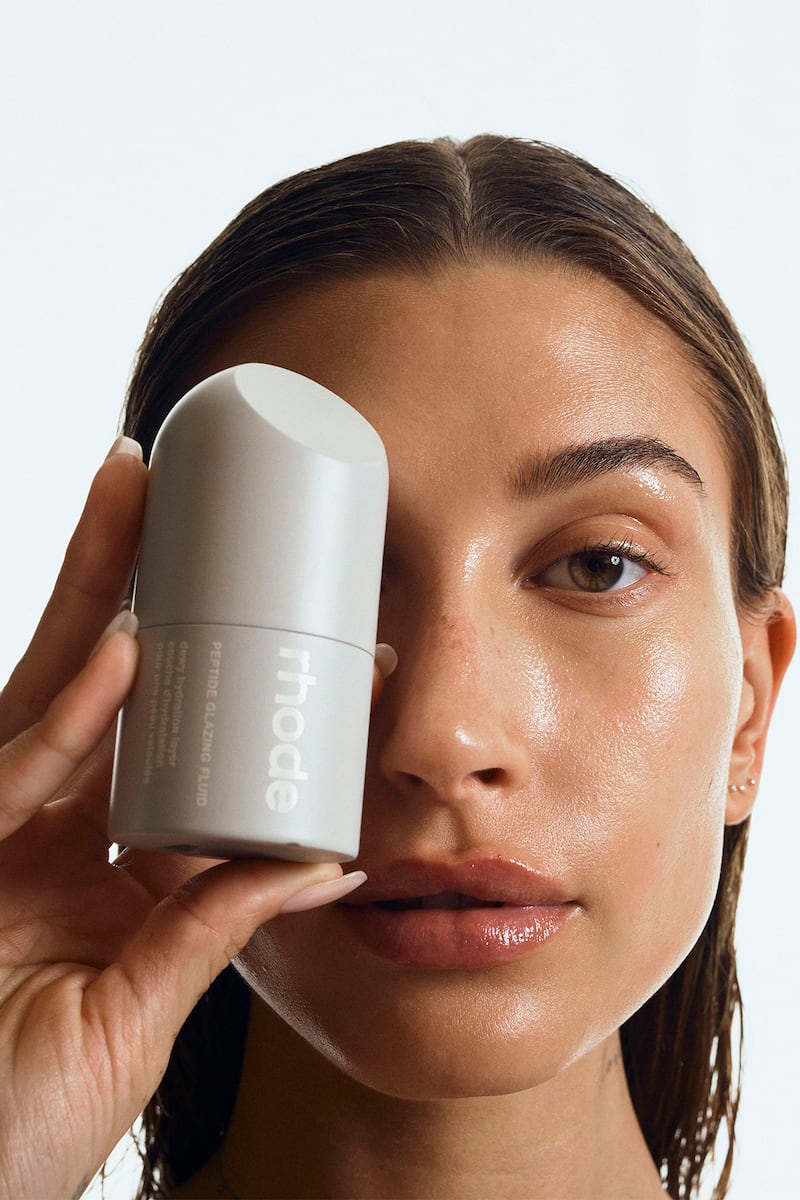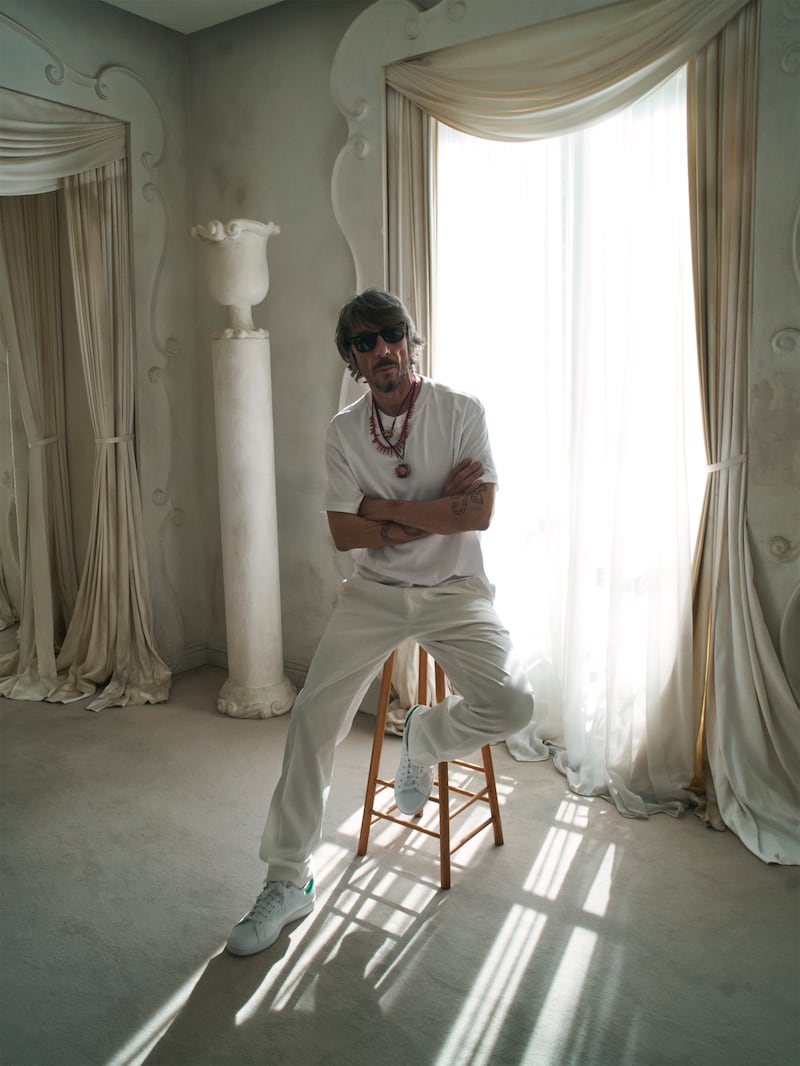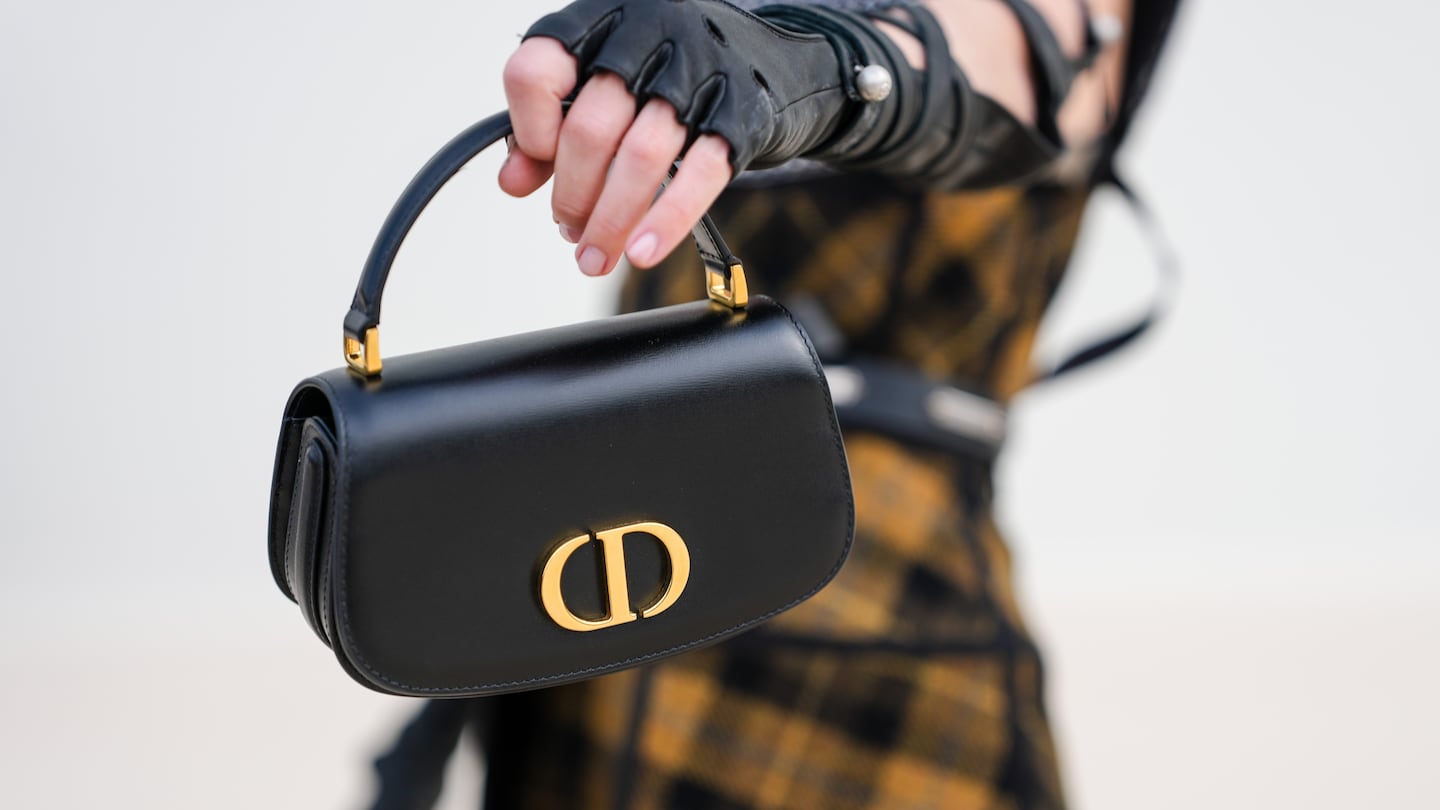Agenda-setting intelligence, analysis and advice for the global fashion community.
For the last year, Dior has been dogged by a sweatshop scandal that has tarnished its image. This week, the luxury giant appeared to finally put it to bed.
On Wednesday, Italy’s Competition Authority closed an investigation into whether the brand had misled consumers about working conditions in its supply chains without finding any wrongdoing. A Dior manufacturing unit had already been released from court-appointed supervision — imposed to ensure the company tightened up supply-chain oversight processes authorities deemed too lax — in February.
The catalyst for the scrutiny was a series of cases brought by prosecutors in Milan, linking luxury labels to local sweatshops. Many of fashion’s top brands had turned a blind eye to labour exploitation in order to maximise profits, prosecutors alleged.
Dior has painted its involvement in the scandal as the result of isolated glitches in an otherwise robust system of supply-chain controls, but the brand has spent months tightening things up in order to get out from under its shadow.
ADVERTISEMENT
The brand “developed several best practices” to resolve concerns about its supply-chain oversight practices, the Milan court concluded when it released Dior from external oversight (early) in February. Italy’s competition authority dropped its case against the brand after it agreed to update its ethics and social responsibility statements, strengthen its processes for vetting and monitoring suppliers and provide additional training to employees in marketing and communication functions. Dior will also contribute €2 million ($2.3 million) over the next five years to help identify and support victims of labour exploitation.
A deftly wielded regulatory stick would appear to have been an effective tool for change. Even brands that have not been caught up in the Milan scandal have tightened their due diligence and outsourcing procedures, insiders say.
Problem solved? Not quite.
Last week, Milan’s court issued a scathing rebuke to Valentino, alleging that the company had done nothing to improve its control systems and continued to work with suppliers that exploited workers, despite the attention drawn to the issues over the last year. The brand must now undergo its own improvement process under the supervision of a court-appointed administrator. Valentino said it has intensified its oversight processes over the last few years and that it would cooperate with authorities to understand the issues.
Critics have argued that the consequences suffered by brands caught up in the scandal are too lax, amounting to little more than a bit of public embarrassment. Italian consumer group Codacons called the Competition Authority’s decision to close its case against Dior this week without imposing any fine or sanction “absurd.”
In the Tuscan manufacturing hub of Prato, local trade union SUDD Cobas said workers still come to their offices reporting issues of labour exploitation at factories that they say supply luxury labels.
To be sure, Italy’s highly fragmented network of small suppliers is difficult to police.
Over the last 30 years, intensifying competition from fast fashion manufactured in low-cost labour markets has given rise to a cottage industry of illegal manufacturers that cut prices by disregarding labour laws and employing their workers under the table. Many of these factories are run by Chinese migrants who began to arrive in Italy in the ‘90s, finding opportunity in a textile sector that many young Italians were abandoning for better opportunities elsewhere.
ADVERTISEMENT
Manufacturers and labour advocates say the issues also stem from large brands’ sourcing practices, which prioritise speed, price and flexibility over labour concerns, essentially demanding “Made in Italy” services at “Made in China” prices.
Years of voluntary commitments to ethical practices have done little to address these structural challenges. Without even-handed, consistent regulatory scrutiny and real penalties when supply-chain controls are found lacking, the risk is that bad practice simply moves to areas where oversight is looser.
THE NEWS IN BRIEF
FASHION, BUSINESS AND THE ECONOMY

Chanel pulled back on price hikes as sales fell 4 percent. The luxury fashion house’s annual revenues dropped for the first time in five years, sliding 4.3 percent to $18.7 billion last year. Chanel plans to ease off price hikes and invest in new markets including India, Mexico and Canada.
LVMH relinquished its place among Europe’s top five biggest stocks. The French conglomerate’s shares fell 3 percent on Thursday, marking a 25 percent decline this year. Sources in the company also cautioned that lacklustre consumer confidence, particularly in China, may cause second-quarter sales to show no improvement on the previous one.
Ralph Lauren’s quarterly results beat estimates on steady demand. The American luxury company surpassed fourth-quarter revenue and profit estimates, but forecast 2025 revenue below estimates due to tariff-related uncertainties.
Amer Sports raised its 2025 guidance on strong demand for Arc’teryx and Salomon footwear. The athletic apparel and equipment maker saw shares rise a record 19.05 percent on Tuesday after it announced first-quarter revenue rose 23 percent year on year to $1.47 million. It also raised its outlook, with revenue expected to grow 15 to 17 percent.
ADVERTISEMENT
Levi Strauss will sell Dockers to Authentic Brands Group for $311 million. The denim brand is selling the apparel brand to the owner of brands like Brooks Brothers and Reebok, allowing Levi’s to focus on its flagship brand and Beyond Yoga activewear line.
Chanel spent $133 million on a Paris building near its flagship store. The building, located at 23 rue Cambon — close to Chanel’s flagship boutique at No. 31 — was purchased for €118 million ($133 million) in September, as “part of the record level of investment made during the year, including in real estate,” a Chanel representative said.
Steve Madden sued Adidas to thwart challenges to shoe designs. Steve Madden sued the German sportswear company over its alleged effort to prevent the US footwear company from selling fashion sneakers featuring two non-parallel bands.
Target cut its 2025 sales forecast on shopper pullback and tariff hits. The retailer reported first-quarter comparable sales dropped 3.8 percent, and now expects net sales to decline by a low single digit this year, down from previous guidance for an increase of about 1 percent, citing the effect of tariffs, boycotts and dwindling consumer confidence.
VF is rushing US imports to beat tariffs, its outlook miss sank shares. VF Corp.’s shares fell 14 percent on Wednesday after forecasting a larger-than-expected loss and reporting it’s been rushing products to the US to beat the 90-day window of tariff pauses. It reported a quarterly operating loss of as much as $125 million, while analysts had expected a loss of $73.1 million.
Luxury retailer Canada Goose withheld its annual forecast on tariff uncertainty. The parka maker withheld from providing its fiscal 2026 forecast, citing the unpredictability of tariffs. The Toronto-based luxury retailer reported strong quarterly sales, causing US-listed shares to shoot up 13 percent in premarket trading.
Hoka, Uggs owner Deckers declined to provide a fiscal outlook due to tariff uncertainty. Though the California-based company’s first-quarter revenue rose 6.5 percent year on year to $1.02 billion, beating analyst expectations, shares plummeted after Deckers scrapped its annual forecast.
Urban Outfitters beat analyst expectations off strong sales growth. The Anthropologie- and Free People-owner beat first-quarter sales and profit expectations in its second straight quarter of strong revenue gains. Sales rose 10.7 percent to $1.33 billion and earnings per share soared 78.5 percent to $1.16, surpassing analysts’ expectations by 40 percent.
TJ Maxx’s parent company beat sales estimates as tariff uncertainty loomed large. Resilient consumer demand for off-price goods caused TJX Cos to beat quarterly sales expectations and maintain annual forecasts. Off-price retailers like TJ Maxx are expected to sidestep China tariffs, due to their expansive sourcing strategies.
UK’s JD Sports fell on lower sales, US tariffs warning. The British sportswear retailer posted a 2 percent fall in first-quarter sales and warned that President Trump’s tariffs could affect customer demand, driving shares down 6 percent.
Swatch was targeted by an activist investor. Steven Wood, founder of US firm GreenWood investors, tried and failed to secure a place on the Swiss watchmaker’s board, as he faced the Hayek family, which controls 44 percent of Swatch voting rights.
Adidas, Puma and Nike all set to raise prices. Some Nike footwear will reportedly see price hikes between $5 and $10, while apparel will increase in price by $2 to $10, while Vietnam, a manufacturing hub for both German sportswear brands, faces the impending return of a steep 46 percent tariff.
Victoria’s Secret adopted a poison pill to thwart investor BBRC. After BBRC increased its position to 13 percent of outstanding shares, the undergarments, sleepwear and beauty brand announced a shareholders rights plan to issue one right for each share at the close of business on May 29 which will be triggered if an investor acquires 15 percent of outstanding common stock, in order to prevent a takeover.
THE BUSINESS OF BEAUTY

Hailey Bieber’s Rhode launched in Sephora. The beauty retailer confirmed the minimalist skincare brand will expand into brick-and-mortar locations.
Revolution Beauty put itself up for sale. The British cosmetics and skincare retailer is exploring a sale after receiving a preliminary takeover approach from an undisclosed potential bidder.
Estée Lauder Companies, Shiseido and L’Oréal suffered as spending on duty-free goods in China continued to fall. Beijing’s crackdown on resellers taking advantage of duty-free shopping, or “daigou” in Chinese, has also stunted Hainan’s economy. In 2022, the province targeted 100 billion yuan of duty-free sales, but in its most recent 2025 report, the goal sank to 52 billion yuan.
PEOPLE

Balenciaga named Pierpaolo Piccioli creative director. Kering named the Italian designer — who spent 25 years at Valentino — as Demna’s successor at the luxury fashion house, effective July 10. Best known for his bold use of colour and sculptural haute couture, Piccioli’s appointment seems to signal an aesthetic and commercial reset for Balenciaga.
Bath & Body Works appointed former Nike executive Daniel Heaf as CEO. Heaf, whose previous role as chief strategy and transformation officer of Nike was eliminated in March, began his tenure as the body care brand’s chief executive immediately following Monday’s announcement, replacing Gina Boswell.
Felix Capital appointed Laurent Droin as partner. The Goop, Anine Bing and Ami Paris investor named Droin a partner in its first such appointment in four years. Previously, Droin was a partner at Eurazeo where he led investments in Gisou, Axel Arrigato and Ex Nihilo.
Cascale CEO Colin Browne stepped down after a year in the role. The sustainability-focussed trade group is searching for a successor after announcing Browne will step down on July 31. Board chair Tamar Hoek said Browne had overseen a reset that stabilised and refocussed the initiative over the last year.
MEDIA AND TECHNOLOGY
Apple announced plans to release smart glasses in 2026 as part of its AI push. Company engineers are accelerating work on the smart glasses in order to meet the tech giant’s late 2026 release goal. The iPhone maker’s current AI offerings have lagged behind competitors’ technology.
Compiled by Jessica Kwon.





